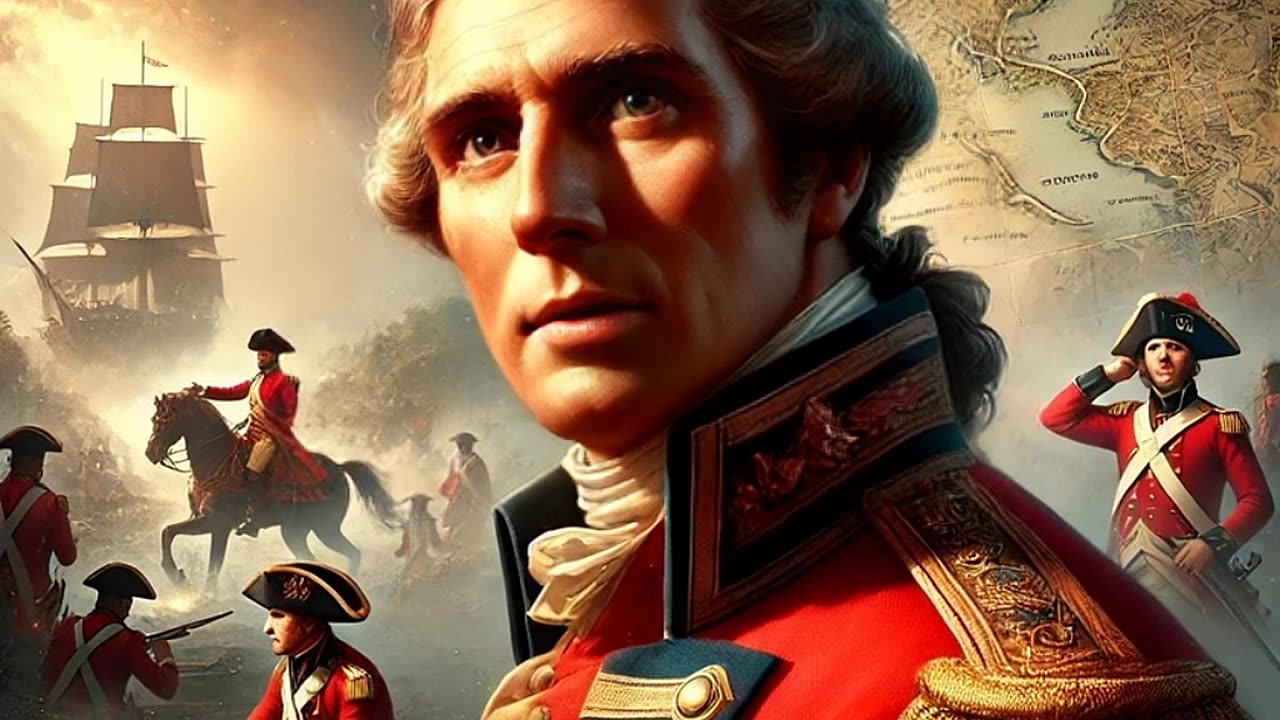Premium Only Content

General Cornwallis Tells About his Devastating Surrender in the American Revolution
Presented to you by: http://www.HistoricalConquest.com
Read more on our blog at: https://www.historicalconquest.com/blog
I am General Charles Cornwallis, and if you’ve studied the American Revolutionary War, you’ve likely heard my name. I was born into British aristocracy in 1738, and from a young age, I was groomed to lead. My family had long been part of British nobility, and military service seemed my natural path. I attended Eton and then military academies abroad, where I honed my skills as a soldier. My career began in the Seven Years' War, which provided me valuable experience in leadership and warfare.
But let’s move to the part of my life that people most associate me with—the American Revolution. When rebellion broke out in the American colonies, I was a lieutenant general under Commander-in-Chief Sir Henry Clinton. The war began well enough for us, and I was given command of the southern campaign after the British had suffered some setbacks in the North. I led a series of victories against the Americans, most notably the capture of Charleston, South Carolina, in 1780, which was a significant win for the British cause.
However, the conflict in the southern colonies became more complicated than I anticipated. The Americans employed guerrilla tactics, and my forces faced constant harassment from local militias and Continental Army regulars under General Nathanael Greene. Our strategy was to hold the South and rally Loyalists to our cause, but support from the colonists was not as strong as we had hoped. I won a significant battle at Guilford Courthouse in 1781, but it came at a tremendous cost. My army was severely weakened, and we had to retreat to Wilmington to regroup.
The final chapter of my American campaign came at Yorktown, Virginia. I had marched my troops there, hoping for reinforcement or evacuation by the British fleet. But we were trapped—General Washington's Continental Army and French forces under General Rochambeau surrounded us on land, and the French navy blocked any escape by sea. After weeks of siege, on October 19, 1781, I had no choice but to surrender. It was a bitter moment, not just for me but for the entire British Empire, as it marked the effective end of the war.
Following the surrender, I returned to England, and contrary to what you might think, my military career was not over. In fact, I continued to serve the crown in important roles. I became Governor-General and Commander-in-Chief of India, where I oversaw reforms and military campaigns, including the defeat of Tipu Sultan during the Third Mysore War. I was later appointed Lord Lieutenant of Ireland, where I had to navigate the complexities of the Irish Rebellion of 1798.
As for my personal life, I was deeply affected by the death of my wife, Jemima, in 1779. We had been married for over a decade, and her loss cast a long shadow over my later years. Despite this, I remained devoted to serving my country. In 1805, I was once again in India, where my health finally gave out. I died while still in service to the crown, a soldier to the end.
History often remembers me for my defeat at Yorktown, but my life was more than that one moment. I served my nation across continents, and my legacy is tied not just to the American colonies but to Britain’s wider imperial history. Remember that the story of a life is rarely defined by a single event.
Visit us at: https://www.historicalconquest.com/marketplace
#historicalconquest #history #historical #ancientamerica #ageofexploration #france #french #iroquois #native #nativeamerican #nativeamericanhistory #british #england #religiouspersecution #expansion #truehistory #settlers #settlement #spain #france #French #Frenchhistory #frenchcolonial #frenchheritage #colonizers #colonizer #FrenchandIndianWar #RevolutionaryWar #AmericanRevolution
-
 0:59
0:59
The Historical Conquest Channel
5 days agoMary Anning Tells of Growing Up Poor and Becoming One of the Most Influential Woman Scientist
17 -
 45:56
45:56
The White House
2 hours agoPresident Trump Visits the Federal Reserve
19.2K12 -
 36:14
36:14
Kimberly Guilfoyle
3 hours agoRussia Hoax Reality Check, Live! | Ep240
4.57K5 -
 11:02
11:02
Preston Stewart
7 hours agoThailand–Cambodia Clash Erupts
372 -
 LIVE
LIVE
LFA TV
20 hours agoLFA TV ALL DAY STREAM - THURSDAY 7/24/25
1,360 watching -
 1:07:35
1:07:35
vivafrei
3 hours agoWall Street Journal DOUBLING DOWN on Epstein! Lawyer in Canada DEBANKED! AND MORE!
83.9K24 -
 4:42:20
4:42:20
Donut Operator
6 hours agoI'M BACK/ CRIME/ GAMEBOY CAMERA CHAD
88.6K4 -
 9:51
9:51
Warren Smith - Secret Scholar Society
5 days agoThe Moment Tim Pool Discovered Why Andrew Wilson is so Unstoppable
38.8K26 -
 28:23
28:23
Film Threat
5 hours agoLIVE FROM SAN DIEGO COMIC-CON! (Thursday) | Film Threat Live
12.9K -
 1:40:00
1:40:00
The Quartering
3 hours agoEpstein Burnout, Hulk Hogan Dies, South Park Flops & Much More
126K47